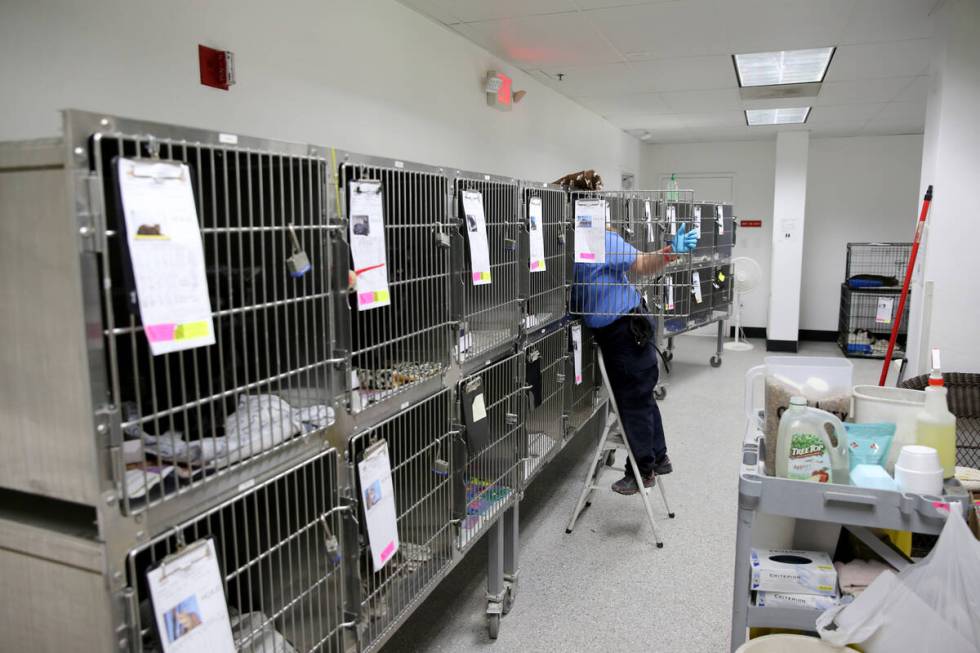Henderson to adopt new strategy to manage stray cats

Henderson is testing out a new program to manage the city’s stray cat population in 2025. The pilot program will trap, neuter, vaccinate and release stray cats from January to December 2025.
In its meeting Tuesday at City Hall, the Henderson City Council unanimously approved the Trap-Neuter-Vaccinate-Return (TNVR) program.
What is TVNR?
As part of the new program, volunteers will trap stray cats in the city. While trapped, cats will be neutered and given rabies vaccines. After cats are neutered and vaccinated, the cat will be returned to the original area where it was trapped.
Cats that have been neutered will have “tipped” ears, so volunteers know what cats have already been neutered. The program’s goal is to reduce the cat population over time, according to council meeting documents posted on the city’s website.
The program will be for “community cats,” defined as cats with no microchips or visible evidence of ownership, said Animal Control Administrator Danielle Harney during the meeting.
“I know in other communities, in our some of our sister cities, it has had a very positive impact. I’m extraordinarily hopeful that it will have the same impact here, and that we will see a noticeable difference in the cats coming into the shelter,” said Henderson Mayor Michelle Romero.
Reducing euthanization rates
“The goal is to minimize the amount of cats that are entering our shelter, as well as the amount of feral cats that we are currently euthanizing,” Harney said during Tuesday’s meeting.
The city’s animal shelter, well known for it’s no-kill policy, has transitioned to a low-kill policy, according to the animal shelter’s website.
“Without a TNVR program, unsocialized feral cats who can’t adjust to life in a human home and have no traditional ‘owners’ to claim them are almost always euthanized,” according to the meeting documents.
Stray cats who cannot adjust to a shelter environment are also euthanized, the documents stated.
Animal shelter volunteers spoke out last year, saying that the animal shelter is “chronically understaffed,” and not prepared to handle the volume of animals being dropped off at the shelter.
Since then, two more employees were hired and an outside consultant was commissioned to assess the needs of the shelter.
Those consultants recommended adding up to 27 positions, according to the 260-page report published in March.
“It is not possible for a shelter the size of the City of Henderson’s to be operated properly with only two Kennel Attendants scheduled to work each day, as it is currently,” the report stated.
The report also recommended a trap-neuter-return method to manage cat populations “as soon as possible.”
“We are one of the last jurisdictions in Southern Nevada that does not have a community cat trap, neuter, release and vaccinate program,” Harney said during the meeting.
The city also put a moratorium on an ordinance that forbid residents from feeding stray animals. The ordinance prohibits residents from placing food that would allow any animal not owned by them to eat that food.
That ordinance will not be enforced starting Jan. 1, 2025.
The volunteer organization spearheading the pilot program is Community Cat Coalition of Clark County (C5), which currently handles TNVR programs for Clark County, Las Vegas and North Las Vegas.
Data will be collected throughout the year to determine the program’s effectiveness.
Contact Annie Vong at avong@reviewjournal.com. Follow @annievwrites on X or @annievong.bsky.social.